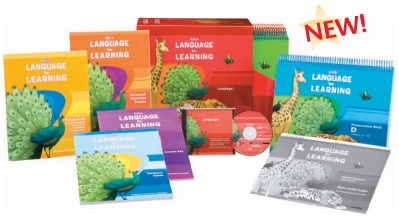Limited English
LIMITED ENGLISH PROFICIENT (LEP) AND ENGLISH LANGUAGE LEARNERS (ELL)
Dreamcatcher offers two program curriculum offerings to students with limited English and/or no English proficiency. For grades K-2 and 3-12, these programs offer real instructional and learning success for students needing the extra assistance in English.
LANGUAGE FOR LEARNING (L4L) GRADES K-2
L4L teaches children the words, concepts, and statements important to both oral and written language. The program emphasizes language as a means of describing the world and as a tool for thinking and solving problems. This language can be described as the language of learning and instruction. Increased language development can easily be measured by the PPVT, a receptive language assessment based on nationally recognized norms. This language program addresses the needs of:
- Five and six year old children in kindergarten and first grade classrooms who have less than adequate language knowledge and skill for their age.
- Four year old children in preschool programs
- Primary age children in bilingual and ESL/ELL programs
- Primary age children who are in Title 1 or Special Education programs.
- Children in speech correction and language classes
Language for Learning provides practice in vocabulary, variety of word and sentence forms, the development of precise word knowledge, and in hard to teach concepts such as some/all/none and same/different. The program provides carefully sequenced lessons to help students as follows:
Features: |
|
|
|
The research-proven content of Language for Learning is based on analyses of the words, concepts, and sentence structures that are used for teaching, as well as an analysis of the directions and content of textbooks and other instructional materials.
Features and Benefits:
- Carefully organized sequences of daily exercises assure varied and thorough instructional delivery.
- Detailed and easy-to-follow teacher materials maximize instructional time spent with students.
- Additional resources such as picture cards, skills folders, and support for ELA students extend the program’s effectiveness to a wide range of young learners.
- Comprehensive tools for performance management, tracking, and assessment promote consistent achievement for all students in the program.
A Fast Cycle option allows advanced students to move through the program at an accelerated rate to match their capabilities.
SPOKEN ENGLISH GRADES 3-12
Spoken English is for students ages 9-adult. It is designed for those that know little or no English, and teaches oral English, and not reading or writing English. The only requirement is that students have 3rd grade knowledge of their own language. This enables them to get the oral skills they need to benefit from other classes more quickly, and to master the basics of the English language in 1 school year. In the field trials, this program showed that ELL students in this program learned more English in 1 school year than most students do in 4 years of traditional English classes!
Learning English as an older student creates several challenges, such as difficulty hearing sounds not in their native language, generating sentences that follow the same word order as their native language, apply phonological rules of their native language to English, apply tonal and stress patterns that they use in their native language to English, and don’t follow the same timing rules as English for word parts. Most ELL students have trouble understanding textbook material even if read to them, and difficulty with teacher explanations of even elementary concepts and relationships of items.
What is the solution? Teach them a basic functional mastery of oral English as quickly as possible. The goal of Spoken English is to have students develop sufficient receptive and expressive vocabulary to be able to understand material taught in various subject areas within 1 school year.
*ELL research and studies:
Double the Work (Deborah J. Short & Shannon Fitzsimmons)
Practices for ELL Russell Gersten and Scott Baker, Eugene Research Institute/University of Oregon
Effective Literacy and English Language Instruction (NCEE 2007-4011, U.S. Department for Education)



